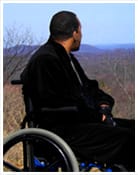Nursing home patients are some of the most vulnerable patients that are seen by medical staff members. Some have no ability to care for themselves, while others are frail or struggling with their health. It’s up to the nursing home staff to make sure these individuals get the care and support they need. If they don’t, then the patients are at a serious risk of death or injury.
One problem in nursing homes is the potential for patients to become dehydrated. To counter this, many nursing homes have requirements in place that make sure patients always have access to water and that the staff keeps track of how much the patient is drinking. When nursing homes don’t keep track of a patient’s intake or monitor a patient for dehydration, it’s possible for the patient to fall ill quickly.
Improving hydration among patients in care homes helps reduce anxiety and improves quality of life. Seniors may become dehydrated more easily due to medication use, decreased thirst, decreased kidney function or illness, so those with signs of dehydration or who are prone to dehydration require more consistent monitoring. The level of hydration a patient needs varies based on a number of factors, but one good way to keep track of a patient’s hydration is to weigh him or her. If a person loses two or more pounds from one day to another, it’s likely that the patient is suffering from dehydration.
Your loved one deserves the care needed to prevent dehydration and related illnesses. If you find he or she is not cared for properly, you can file a claim against the nursing home.
Source: A Place for Mom, “Elderly Dehydration: Prevention & Treatment,” accessed Oct. 12, 2017

